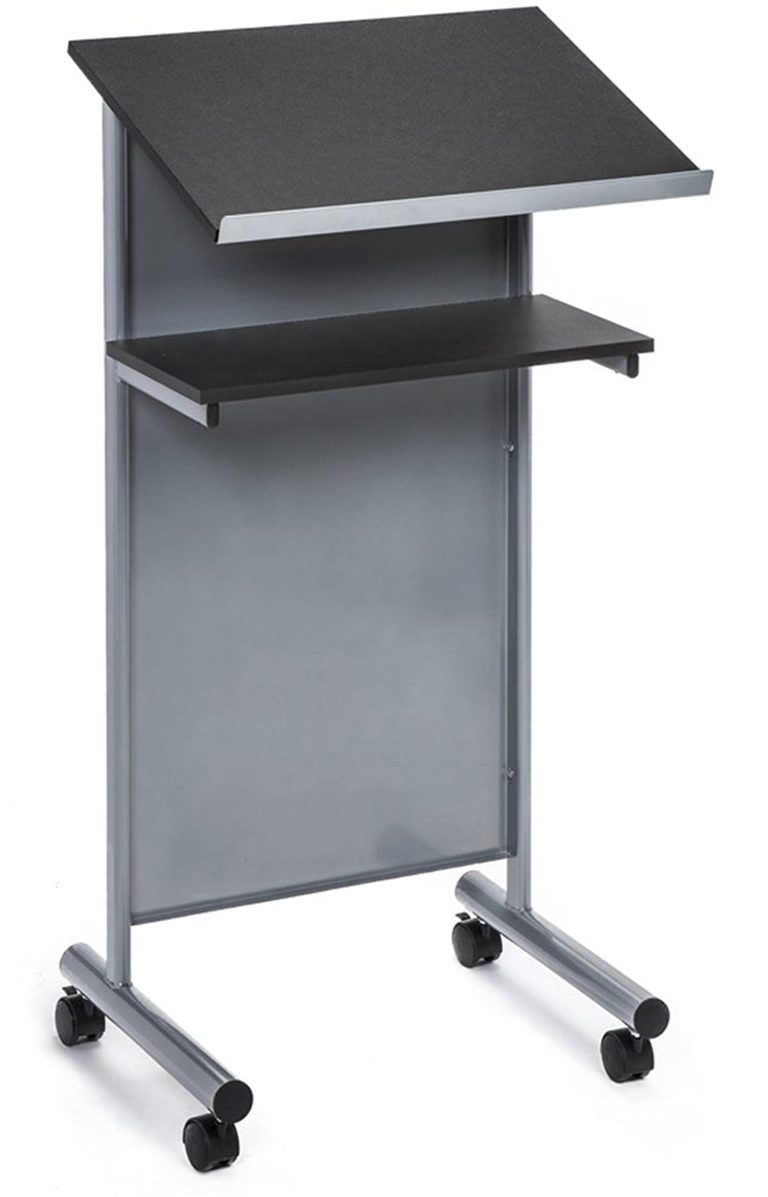What Is Employee Appreciation
Employee appreciation refers to the act of recognizing and acknowledging the efforts and contributions of employees in a workplace. It is an essential practice for boosting employee morale, fostering a positive work culture, and improving overall productivity.
In today’s competitive business world, organizations understand the significance of employee appreciation in retaining top talent and motivating their workforce. When employees feel valued and appreciated for their hard work, they are more likely to remain loyal to the company and go above and beyond in their tasks.
Employee appreciation can take many forms, such as verbal recognition, written appreciation letters, bonuses, gifts, team celebrations, and employee recognition programs. By implementing effective employee appreciation strategies, employers can create a more vibrant and engaged work environment, leading to higher job satisfaction, increased employee retention, and improved organizational success.
Importance Of Employee Appreciation
Employee appreciation is crucial for fostering a positive work environment where employees feel valued and motivated. It involves recognizing and acknowledging the efforts and contributions of employees, which can significantly impact their morale, motivation, and overall job satisfaction. Below, we’ll discuss the importance of employee appreciation in relation to boosting morale and motivation, as well as improving employee retention.
Boosts Morale And Motivation
Employee appreciation plays a vital role in boosting morale and motivation within the workplace. Recognizing and rewarding employees for their hard work helps create a positive and supportive atmosphere. When employees feel appreciated, they are more likely to be enthusiastic, engaged, and motivated to go the extra mile. This positivity can influence their overall performance, productivity, and team collaboration.
Improves Employee Retention
One of the key advantages of employee appreciation is its impact on employee retention. When employees feel valued and appreciated, they are more likely to stay with the company for the long term. This increases the overall stability of the workforce and reduces the costs associated with recruitment and training. Moreover, employee retention is essential for maintaining continuity, preserving institutional knowledge, and promoting a positive company culture.
In conclusion, employee appreciation is not just a nice gesture, but a strategic tool to enhance the well-being and satisfaction of employees. By boosting morale and motivation, and improving employee retention, organizations can create a positive work environment that fosters productivity, loyalty, and success.

Credit: www.synergita.com
Ways To Show Employee Appreciation
Employee appreciation is crucial for creating a positive work environment and fostering a sense of loyalty and motivation among your team members. Recognizing and acknowledging their efforts and achievements not only boosts morale, but also encourages a culture of engagement and productivity. Here are some effective ways to show employee appreciation:
Recognition Programs And Awards
Implementing recognition programs and awards can be a powerful way to show your employees that their hard work and contributions are valued. Consider setting up a system where employees can nominate their peers for outstanding performance or create specific metrics to measure and recognize achievements. You can present awards during team meetings or organize special events to celebrate the exceptional efforts and achievements of your employees.
Flexible Work Schedules
Offering flexible work schedules is another way to demonstrate that you appreciate your employees. By allowing them to have control over their work hours, you empower them to balance their personal commitments and professional responsibilities. This flexibility helps reduce stress and improves work-life balance, ultimately leading to increased job satisfaction and productivity. Managers can also allow employees to work remotely or offer compressed workweeks, giving them the freedom to plan their work in a way that suits their individual needs.
Benefits Of Employee Appreciation
Employee appreciation is not just a nice gesture, but a powerful tool that offers several benefits to both employees and the companies they work for. By showing genuine appreciation, organizations can experience increased productivity and improved company culture. Let’s explore these benefits in detail:
Increased Productivity
When employees feel appreciated, they are motivated to perform better, leading to increased productivity. By acknowledging their efforts and contribution, employees are more likely to go the extra mile. This creates a positive cycle where employees feel valued, leading to higher job satisfaction, and subsequently, improved performance. Appreciated employees are more likely to take ownership of their work, leading to increased efficiency and productivity.
Enhanced Company Culture
Employee appreciation fosters a positive company culture where employees feel valued, validated, and supported. This creates a sense of purpose and belonging, resulting in higher employee morale and job satisfaction. A culture of appreciation promotes teamwork, collaboration, and mutual respect among employees. When each individual feels appreciated for their unique contributions, it leads to a cohesive and harmonious work environment.

Credit: www.news18.com
Barriers To Effective Employee Appreciation
Employee appreciation plays a crucial role in fostering a positive work environment, yet barriers to its effectiveness are prevalent. These obstacles hinder the recognition of employees’ efforts, such as lack of communication, limited resources, and inadequate leadership support, impacting overall employee satisfaction and motivation.
Lack Of Communication
One of the primary barriers to effective employee appreciation is the lack of communication within an organization. When employees are not kept informed about their performance, they may feel undervalued and uncertain about their contributions. This can lead to decreased morale and a disconnection between employees and management. Without clear and timely communication, it becomes difficult for employees to understand how their efforts are recognized and appreciated. As a result, the lack of communication serves as a significant obstacle to establishing an atmosphere of employee appreciation.
Inconsistent Implementation
Another barrier to effective employee appreciation is inconsistent implementation. When appreciation efforts are not consistently carried out, employees may perceive it as insincere or tokenistic. Inconsistency can include sporadic recognition, limited acknowledgement from managers, or favoritism within the organization. This lack of consistency undermines the overall impact of employee appreciation initiatives, leading employees to feel undervalued and demotivated. To foster a culture of appreciation, organizations need to ensure that employee recognition efforts are consistently implemented and applied to everyone in a fair and transparent manner.
Best Practices For Successful Employee Appreciation
Employee appreciation is an essential aspect of maintaining a happy and motivated workforce. Recognizing and acknowledging employees for their hard work and dedication can greatly contribute to their job satisfaction and overall engagement. To ensure that your employee appreciation initiatives are successful, it is important to follow some best practices that foster a positive work environment and make employees feel valued and appreciated.
Regular Feedback And Communication
Regular feedback and communication are key components of successful employee appreciation. By providing consistent and constructive feedback, employees can better understand their strengths and areas for improvement, which allows them to grow both personally and professionally. Implementing a feedback system, such as regular performance evaluations or one-on-one meetings, helps create a transparent and open line of communication between managers and employees. It allows managers to show appreciation for a job well done, while also addressing concerns or offering guidance.
Personalized Gestures
Personalized gestures are a powerful way to demonstrate appreciation and make employees feel valued as individuals. Not all employees have the same preferences or motivations, so it’s important to tailor your gestures to each employee’s preferences. This could involve praising their specific achievements publicly during team meetings or acknowledging their contributions in a personalized email or handwritten note. Additionally, celebrating milestones such as work anniversaries or birthdays can go a long way in making employees feel seen and appreciated.
| Examples of Personalized Gestures |
|---|
| • Offering flexible work hours or remote work options |
| • Providing opportunities for professional development and growth |
| • Organizing team-building activities and outings |
Incentives And Rewards
Incentives and rewards are powerful motivators that can boost employee morale and productivity. Offering tangible rewards such as gift cards, bonuses, or extra time off are excellent ways to show appreciation for a job well done. Moreover, setting up a recognition program where employees can receive badges, certificates, or public acknowledgment for their achievements can foster healthy competition and inspire continuous improvement. Incentives and rewards not only recognize individual efforts but also convey that the organization values and appreciates the hard work of its employees.
- Collaboration is key: Encourage teamwork and cross-departmental collaboration to foster a sense of unity and cooperation within the organization.
- Provide opportunities for growth: Support employee development by offering training programs, mentorship, and opportunities to learn new skills.
- Show appreciation regularly: Implement a regular cadence of recognition, whether it’s weekly shout-outs or monthly awards, to regularly acknowledge and appreciate employees’ contributions.
- Offer flexibility: Consider providing flexible work schedules or remote work options to accommodate employees’ personal needs and promote work-life balance.
- Create a positive work environment: Foster a positive and inclusive workplace culture where employees feel safe, respected, and empowered to voice their opinions and ideas.

Credit: blog.vantagecircle.com
Frequently Asked Questions For What Is Employee Appreciation
Faq 1: Why Is Employee Appreciation Important?
Employee appreciation is important because it increases motivation, engagement, and overall job satisfaction among employees.
Faq 2: How Can Employee Appreciation Improve Company Performance?
When employees feel appreciated, they are more likely to be loyal, productive, and go above and beyond in their work, leading to improved company performance.
Faq 3: What Are Some Effective Ways To Show Employee Appreciation?
Effective ways to show employee appreciation include recognizing achievements publicly, providing meaningful rewards and benefits, and fostering a positive and inclusive work environment.
Conclusion
Appreciating employees is crucial for the success of any organization. By acknowledging their efforts and contributions, businesses can foster a positive work environment and boost employee morale. Employee appreciation not only increases job satisfaction but also enhances productivity and loyalty.
It is a win-win situation both for employers and employees. So, remember to celebrate and value your team members for their hard work and dedication. Your organization will reap the benefits in the long run.



